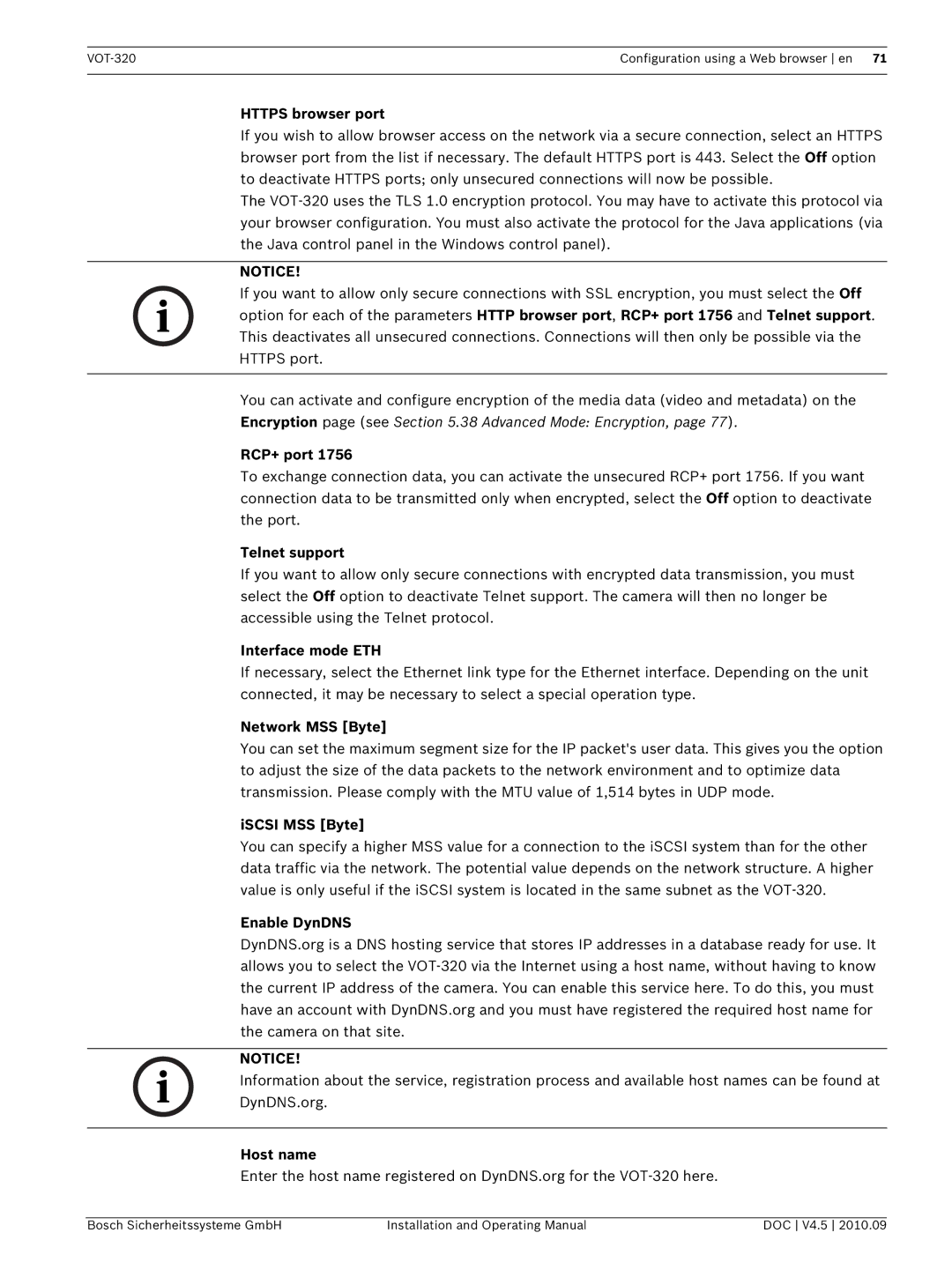
Configuration using a Web browser en 71 | |
|
|
HTTPS browser port
If you wish to allow browser access on the network via a secure connection, select an HTTPS browser port from the list if necessary. The default HTTPS port is 443. Select the Off option to deactivate HTTPS ports; only unsecured connections will now be possible.
The
NOTICE!
If you want to allow only secure connections with SSL encryption, you must select the Off option for each of the parameters HTTP browser port, RCP+ port 1756 and Telnet support. This deactivates all unsecured connections. Connections will then only be possible via the HTTPS port.
You can activate and configure encryption of the media data (video and metadata) on the Encryption page (see Section 5.38 Advanced Mode: Encryption, page 77).
RCP+ port 1756
To exchange connection data, you can activate the unsecured RCP+ port 1756. If you want connection data to be transmitted only when encrypted, select the Off option to deactivate the port.
Telnet support
If you want to allow only secure connections with encrypted data transmission, you must select the Off option to deactivate Telnet support. The camera will then no longer be accessible using the Telnet protocol.
Interface mode ETH
If necessary, select the Ethernet link type for the Ethernet interface. Depending on the unit connected, it may be necessary to select a special operation type.
Network MSS [Byte]
You can set the maximum segment size for the IP packet's user data. This gives you the option to adjust the size of the data packets to the network environment and to optimize data transmission. Please comply with the MTU value of 1,514 bytes in UDP mode.
iSCSI MSS [Byte]
You can specify a higher MSS value for a connection to the iSCSI system than for the other data traffic via the network. The potential value depends on the network structure. A higher value is only useful if the iSCSI system is located in the same subnet as the
Enable DynDNS
DynDNS.org is a DNS hosting service that stores IP addresses in a database ready for use. It allows you to select the
NOTICE!
Information about the service, registration process and available host names can be found at DynDNS.org.
Host name
Enter the host name registered on DynDNS.org for the
Bosch Sicherheitssysteme GmbH | Installation and Operating Manual | DOC V4.5 2010.09 |
